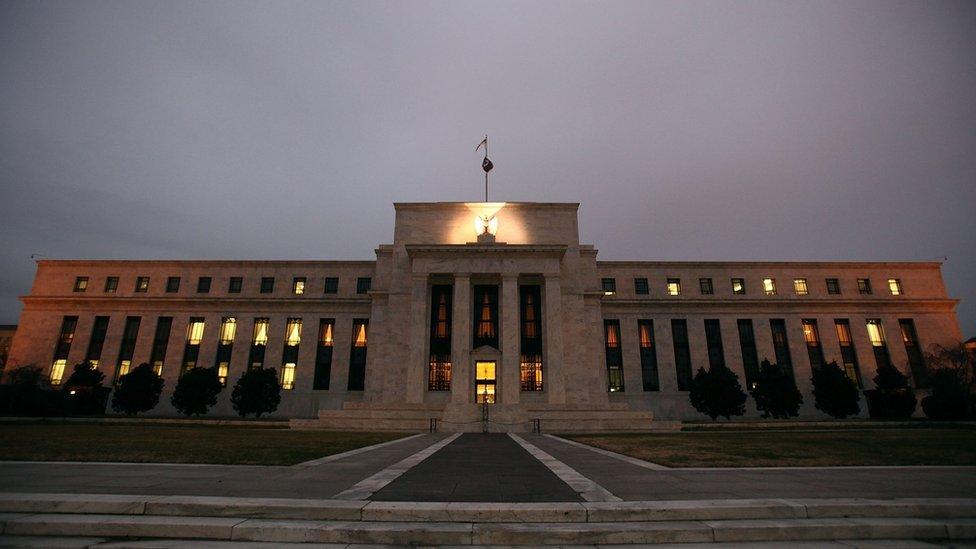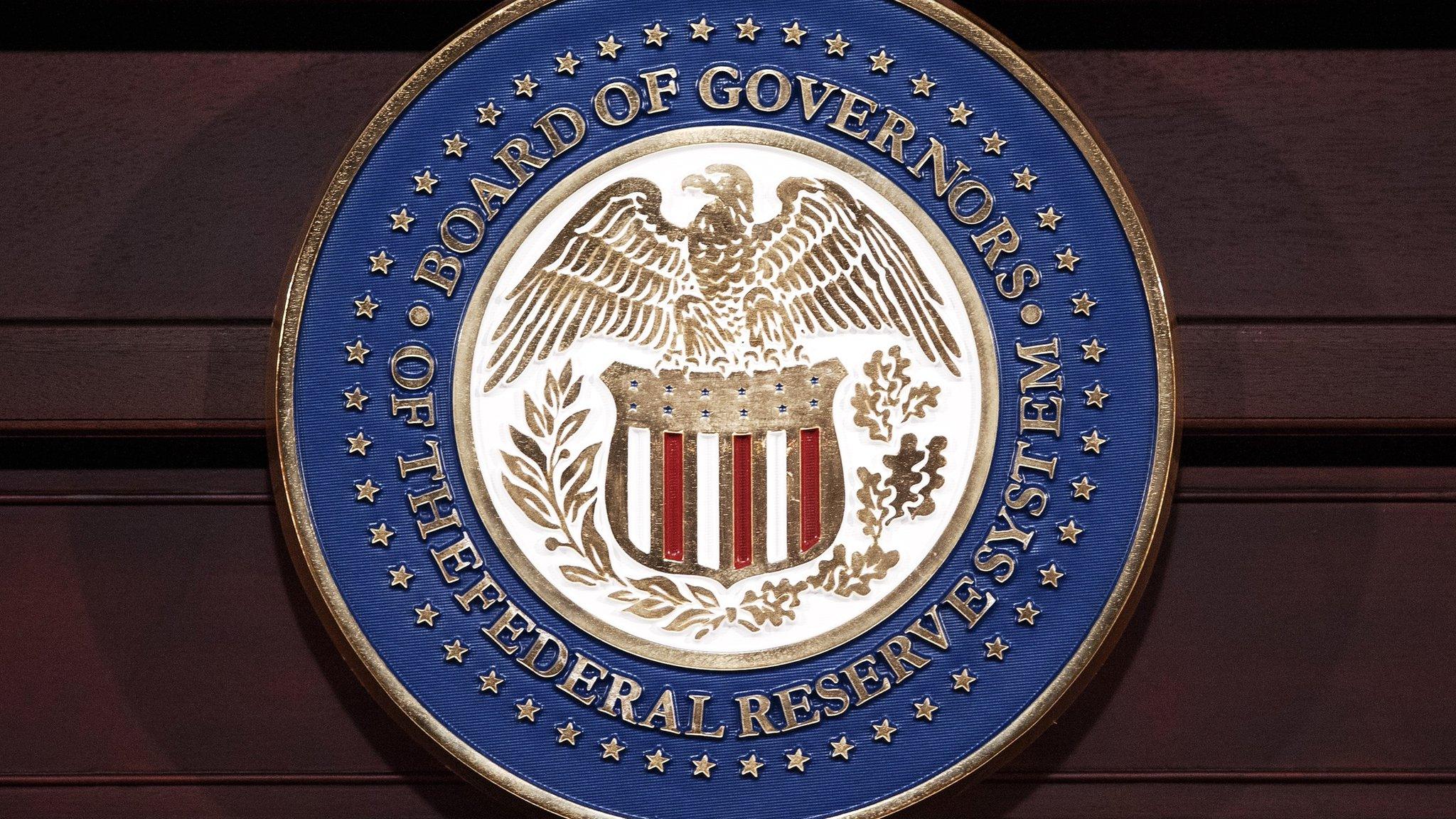US Federal Reserve holds interest rates
- Published

The US Federal Reserve has decided to keep interest rates at between 0.25% and 0.5%.
The central bank said the labour market was strengthening, but it was still looking for inflation to reach its 2% target and expected the US economy to continue to "expand at a moderate pace"
The US central bank last raised rates in December, saying it expected to raise rates four times in 2016.
It now says it expects to raise rates just twice this year.
"Proceeding cautiously will allow us to verify that the labour market is continue to strength given the economic risk from abroad," said the Chairman of the Federal Reserve, Janet Yellen, speaking at a press conference after the announcement.
In a statement issued on Wednesday, the Fed's Open Market Committee - which decides the level of interest rates - said that while the US economy was seeing some improvement, weaker global markets were having a dampening effect.
"Household spending has been increasing at a moderate rate, and the housing sector has improved further; however, business fixed investment and net exports have been soft," the committee said.

Analysis: Michelle Fleury, North American Business Correspondent
As one Fed watcher put it, this amounted to easing of monetary policy.
The Federal Reserve scaled back the number of times it expects to raise interest rates this year, warning that global economic and financial developments continue to pose risks.
Fed officials publish their forecasts for the central bank's key interest rate on a chart known as the "dot plot".
By pencilling in just two hikes this year - instead of the four assumed back in December - they were sending a message: they think the US needs more time to recover.
Fearing that financial markets might get ahead of themselves, Chair Janet Yellen in her new conference warned that the "dot plot" was not a promise and that policy was not on a pre-set course.
A message that may not have got through given the reaction on the S&P which closed at a high for this year.

An unexpected rise in underlying US inflation has led many investors to view June as month when the Fed will raise rates.
The Fed said its target of 2% inflation could be reached over the medium term, however, due to the effect of falling oil prices.
Labour market
Inflation and the job market have been the two key factors in the Fed's decision to raise rates.
The US labour market has been improving. The unemployment rate fell bellow 5% in January. Ms Yellen stressed that the labour market participation rate - which measures the number of people looking for work - had also improved, a further sign of a strengthening economy.
Ms Yellen stressed that "policy is not on a pre-set course" and would change "as shocks positive or negative affected [economic] forecasts".
In December, the Fed downgraded its growth expectations for the US economy from 2.4% to 2.2%.
Oil prices
Energy prices have been a significant factor in the Fed's decision.
The price of oil has risen from an 11-month low of below $30 a barrel to just under $40.
Ms Yellen said this had eased concerns about the health of some companies and foreign markets that rely on oil production.
At the same time lower oil prices have allowed US households to spend in other areas.
- Published16 December 2015

- Published15 December 2015
